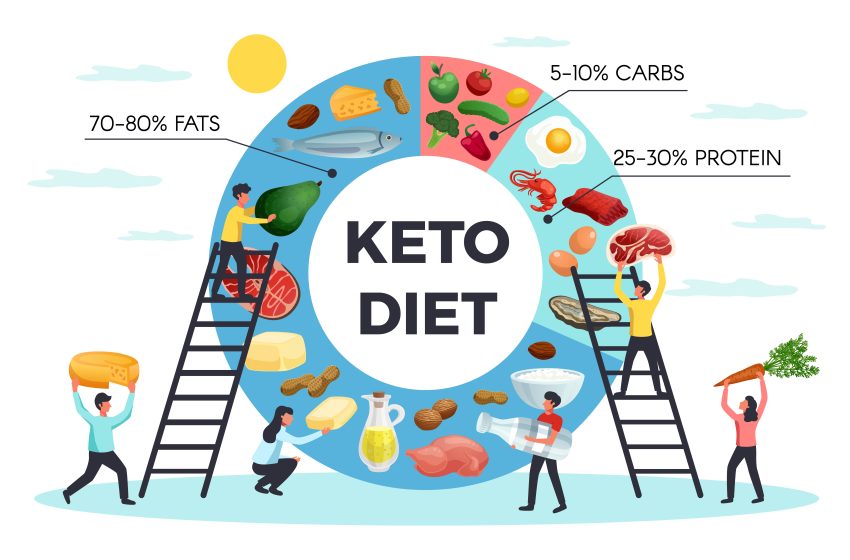The ketogenic diet, commonly referred to as the “keto” diet, is a low-carb, high-fat eating plan that has been gaining popularity in recent years. Its goal is to switch the body’s primary source of fuel from glucose to fat, leading to more efficient weight loss. However, this diet comes with some questions. Let’s explore some of the most common questions about keto diets and the answers to them.
Q1: What is a Ketogenic Diet?
A ketogenic diet is a low-carb, high-fat diet that has been found to be effective for weight loss, as well as various other health benefits. It simply means the percentage of calories from carbs should be lower than 5%, while the fat macronutrients should account for around 70-80% of the total intake.
Q2: What are the Health Benefits of a Ketogenic Diet?
There are multiple health benefits associated with the ketogenic diet, including increased weight loss, improved heart health, improved cognition, and decreased risk of type 2 diabetes and other chronic diseases. The diet also has been shown to reduce levels of hunger and improve energy levels.
Q3: Is a Ketogenic Diet Safe?
The keto diet is considered safe for most people and is generally well-tolerated. It is important, however, to consult with a doctor before starting the diet, particularly if you have any underlying medical conditions.
Q4: What Should You Eat on a Keto Diet?
A keto diet should focus on healthy sources of fat, such as nuts, avocados, olive oil, and fatty fish, as well as low-carb vegetables, such as leafy greens, cauliflower, and broccoli. It is also important to limit added sugars and refined carbohydrates, as well as processed foods.
Q5: How Restrictive is a Keto Diet?
The keto diet is quite restrictive, and therefore, can be difficult to stick to. To ensure success, it is important to have an understanding of the foods that are allowed and focus on nutritious food sources, such as oils, seeds, and butter. Additionally, it is important to ensure enough protein is consumed each day, as this is an essential macronutrient for the keto diet.
Q6: How long can you stay in nutritional ketosis?
Nutritional ketosis is a metabolic state wherein the body is obtaining minimum amounts of carbohydrates and relies primarily on fat as an energy source. The length of time that a person stays in this state depends on several factors, including age, gender, activity levels, medical history, and diet composition. Generally speaking, nutritional ketosis can be sustained over a longer period of time when the body is able to efficiently break down fatty acids into ketones. While most people are able to stay in nutritional ketosis for a few weeks or months at a time, those that strictly adhere to a low-carbohydrate way of eating may experience longer-term benefits from being in a state of nutritional ketosis. Additionally, athletes who abide by proper hydration and calorie requirements during intense training sessions may be able to remain in nutrient ketosis for prolonged periods as well.
Overall, the ketogenic diet can be a successful weight loss strategy as long as it is implemented with the support and guidance of a healthcare provider. Individuals should also remember to focus on consuming nutritious foods, as this is the key to success with the keto diet.

Get your custom keto meal plan
What’s your main health goal?


